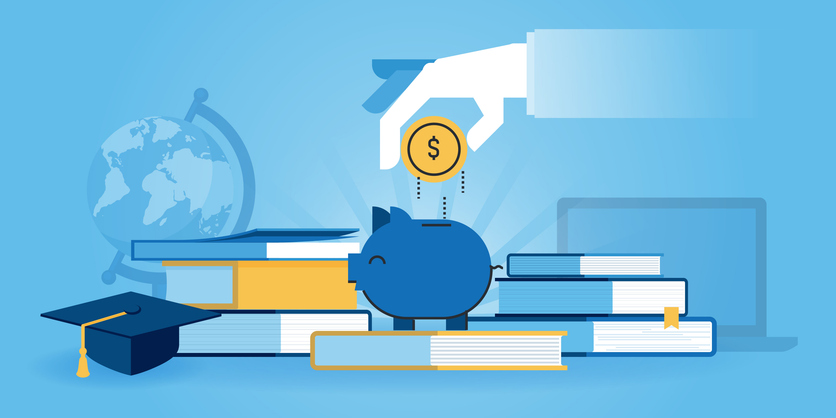What is SEL and What Does It Mean for Educators?
Here at Progress Learning, a central aspect of our mission is to help educators prepare their students for state standard assessments and meet the requirements of academic rigor that will help them find success in their academic careers and beyond. That said, we also recognize that the academic subjects listed on a state’s standards aren’t the only areas of education that matter. We believe, and research confirms, that a child’s social and emotional development are equally important in creating young people that are prepared to be successful in their lives, relationships, careers, and academic pursuits.
That’s why we’re supporters of what’s known as social and emotional learning (SEL), a central aspect of education that is unfortunately sometimes undervalued in educational settings.
One of the leading voices in the fight for greater emphasis on social and emotional learning is CASEL, an organization that brings together researchers, educators, practitioners, and child advocates around the nation in an effort to make social and emotional development more central to primary education.
In this article, we’ll explore what social and emotional learning means, how CASEL has created an effective framework for helping foster it, and how we at Progress Learning and educators like you can help.
What is Social and Emotional Learning?
Social and emotional learning, which we’ll refer to from here forward using the acronym SEL, refers to young people and adults’ ability to develop knowledge, skills, and attitudes that will help them develop healthy identities, manage their emotions in a healthy way, achieve their goals, feel empathy towards others and show that empathy in appropriate ways, establish and maintain supportive relationships, and make decisions that are both responsible and caring towards the needs of others.
Traditionally, organizations like CASEL have fostered SEL through partnerships between schools, communities, and families, helping to establish learning environments and experiences that don’t just cover basic curriculum but do so in a way that features collaboration, meaningful instruction, trusting relationships, and ongoing evaluation.
The CASEL Framework
In order to formalize the areas of SEL required to help create well-rounded young people and adults, CASEL has created a framework that schools, districts, states, and others can use in order to foster knowledge in all areas of social and emotional competence and create equitable learning environments for children.
The framework is divided into five areas. They’re numbered here for organizational purposes, but according the framework no one area of development takes precedent or importance over another.
- Self-Awareness
The CASEL framework describes self-awareness as ‘the abilities to understand one’s own emotions, thoughts, and values and how they influence behavior across contexts.’
This includes the ability to see one’s own strengths and limitations, all without sacrificing confidence and a sense of personal purpose. Skills in this area include integrating personal and social identities, identifying one’s own emotions for what they are, demonstrating integrity, examining personal prejudices and biases, and developing a sense of purpose— among others.
Self-awareness is considered an essential tool in developing expertise in both academic and professional settings as well as becoming better equipped to build interpersonal relationships that are meaningful and equitable.
- Self-Management
Described as ‘the abilities to manage one’s emotions, thoughts, and behaviors effectively in different situations and to achieve goals and aspirations,’ self-management can take many forms. Key skills include the ability to delay gratification (give up a small reward now for a larger reward later), manage stress, and feel motivation and personal agency to accomplish personal and collective goals.
Formal education is administered in a controlled, structured environment, where students are given more than their own internal motivation and discipline as motivation to work and achieve. But young people must also learn to develop their own self-discipline and self-motivation, the ability to keep moving forward when no one is holding them accountable but themselves.
- Social Awareness
Social awareness involves ‘the abilities to understand the perspectives of and empathize with others, including those from diverse backgrounds, cultures, and contexts.”
Teaching young people to feel compassion for others, understand broader historical and social norms for behavior in different settings, and recognize the community resources that surround them are all essential skills that will help them thrive in a world filled with different cultures and perspectives. When students learn to take others’ perspectives and recognizes their strengths, show empathy and concern for the feelings of others, and identify diverse social norms— including those that are unjust— they’re not just able to personally thrive in a social world, but they become more responsible citizens of that world.
- Relationship Skills
Building relationships includes the ‘abilities to establish and maintain healthy and supportive relationships and to effectively navigate settings with diverse individuals and groups.’
Research proves that children who develop increased emotional intelligence and relationship skills thrive in everything from educational and career settings to interpersonal relationships and even romantic partnerships. This segment of the CASEL framework involves helping students learn skills such as communicating effectively, developing positive relationships, demonstrating cultural competency, and practicing teamwork and collaborative problem-solving. It also involves the ability to resolve conflicts in a constructive, equitable way, and resisting negative social pressure.
- Responsible Decision-Making
The ability to ‘make caring and constructive choices about personal behavior and social interactions across diverse situations’ is an essential part of being human. Responsible decision-making isn’t just about helping choose between multiple options and conduct thoughtful assessments of outcomes, but it can also help young people learn how to keep themselves and people around them safe through the choices they make. At a time when young people’s brains are still developing the ability to think critically and make responsible decisions, educators can play a central role in helping them learn to evaluate the personal, interpersonal, community, and institutional impacts of their actions.
What This Means for Educators
Educators are ideally positioned to help students develop their social and emotional skills through SEL and the CASEL 5 framework.
At Progress Learning, our training modules and assessment preparation platform has been designed with SEL and the CASEL framework in mind. Activities and the overall structures of the platform itself are designed to help students develop social and emotional skills every step of the way, even as they’re learning to meet standardized curriculum for their state.
Want to learn more? Schedule a demo or try Progress Learning for 30 days free.


